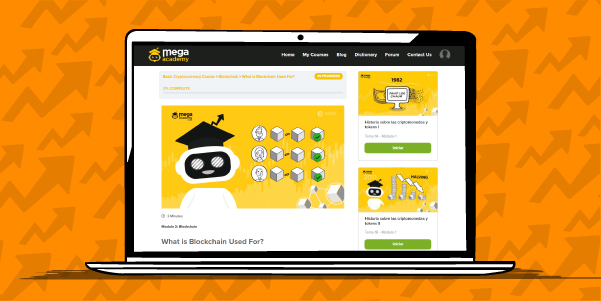Bitcoin is a decentralized digital currency whose operation is based on an open, global and censorship-resistant Peer-to-Peer network in which everyone, anywhere in the world, can participate with just access to the internet.
This network is basically made up of “Nodes”, which are participants in the Bitcoin network and have an active role in the chain of blocks.
If you want to know more about this, here we explain what a Bitcoin node is, as well as its types, characteristics, and advantages.
What is a Node?
In the context of Crypto assets, The word “Node” is used to refer to a participant on a Peer-to-Peer network of a Cryptocurrency that serves as infrastructure for it.
Despite the fact that software clients to run Nodes usually integrate the functions usually associated with wallets (Sending and Receiving transactions), the concept of “Node” and “Personal Wallet” should not be confused, since software for nodes offer additional and very particular functions, such as the ability to cryptographically verify the content of the block chain and to participate in activities such as mining.
What is a Bitcoin “full node”

“Full Nodes” or “Non-mining Nodes” are those that execute the Peer-to-Peer network protocol of a Cryptocurrency receiving information from the network, verifying the validity of all transactions and retransmitting them to other participants, but without participating in mining.
The main feature that distinguishes full nodes from wallets is that they need to be fully synchronized with the blockchain to interact with it. Meaning, they require downloading the Cryptocurrency transaction log.
This process is performed automatically by the node once it has been installed, and it does so constantly as content is added to the blockchain.
Because the blockchain is very large (Almost 300 gigabytes), the first time a Bitcoin node syncs with the Peer-to-Peer network usually takes several hours to a few days, depending on the connection speed.
This is a fundamental difference with respect to “Light Wallets”, which are apps whose data takes up little space and which can be used immediately after installation.
Click to Tweet: The word “Node” is used to refer to a Peer-to-Peer network participant of a Cryptocurrency that serves as infrastructure for it
What are Bitcoin mining nodes
While the software required to mine Bitcoin is the same as that used to run a “Full Node”, mining is an optional and voluntary activity. For this reason, only those that exploit this function by contributing their computational power to the network with the expectation of a reward per block mined are called “Mining Nodes”.

Due to strong competition and technological advances in terms of mining hardware, currently, bitcoin miners do not carry out this activity alone, but rather collaborate in groups called “Pools” or “Mining groups”.
Through these “Pools”, the participants collectively solve the mathematical operations necessary to mine a block, and when they get the reward, they distribute it based on the calculation power contributed by each one of the miners who participated in the creation of said block.
The weight of Bitcoin’s security falls mainly on the behavior of this type of nodes, which are financially incentivized to defend the integrity of the network.
Advantages of maintaining your own Bitcoin node
If you want to maintain your own Bitcoin node, it is recommended that you have enough space on your hard drive to sync your node, as well as a good internet connection.
Next, we show you some of the advantages that having your own node offers you with respect to a personal wallet:
- Your own node will give you the ability to verify everything on the blockchain, as the software automatically matches the information it receives with the information it owns. This offers you greater security, especially if you receive high amounts.
- Running your own node software will make you independent of servers like those needed by wallets that use “Simple Payment Verification” (SPV) protocols; nodes connect directly to other nodes on the Peer-to-Peer network.
- You will have more privacy when you receive transfers, because your node will check your balance directly using the record it stores, instead of revealing your addresses to third party nodes to know that information.
- If you develop a blockchain-based system, providing it with its own node gives greater reliability to the data you use, since you will not have to trust the information provided by third parties. Also, you will have more control over the infrastructure of your node, instead of depending on the decisions of others.
Conclusion
Bitcoin nodes are the Peer-to-Peer network participants that support the operation of the Cryptocurrency. There are two main types of nodes: Full and Miners. Full nodes verify all transactions and blocks on the chain, while Mining nodes contribute their computing power to generate new blocks and earn rewards.
Having your own Bitcoin node offers you several advantages, such as greater security, independence, privacy and reliability. If you want to be part of the Bitcoin network and contribute to its decentralization, you can install your own node software and sync with the blockchain. This is why MegaAcademy is your best option to enter the Crypto market successfully.
With our basic course in Cryptocurrencies you will be able to learn from the most basic concepts of the Crypto ecosystem, to the best advice for your investments. So if you want to start your investments in bitcoin or any other Cryptocurrency, join the best at MegaAcademy.


















